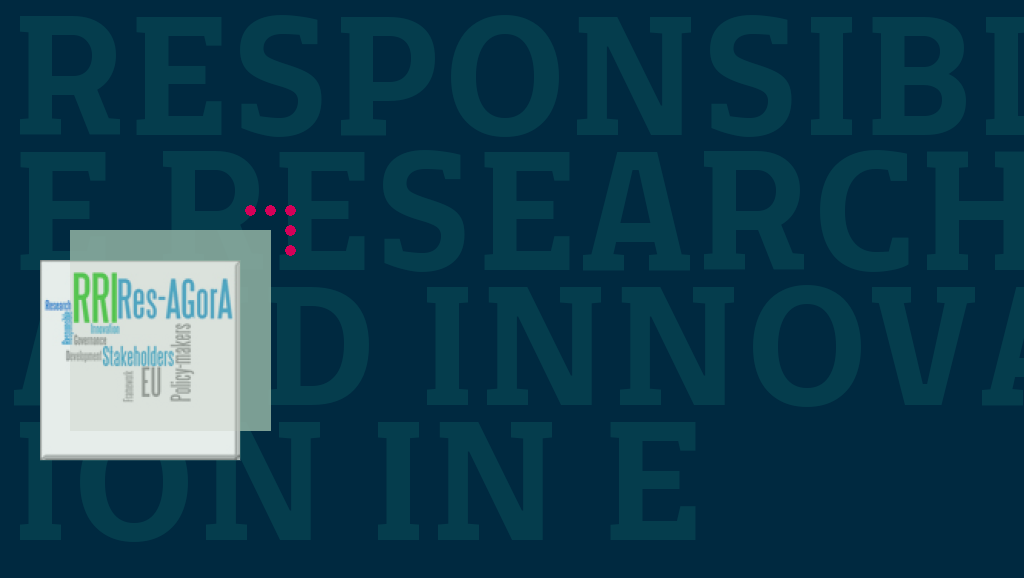On 14 -15 January 2016 the Go4 Joint Final Conference “Responsible Research and Innovation in Europe and across the World” will take place at the EESC in Brussels, Belgium.
The Go4 conference will present key results drawn from 3 year’s work of four major FP7 projects. All of the projects share a common concern to improve our understanding of the emerging concept of Responsible Research and Innovation (RRI), and develop approaches, tools and mechanisms to facilitate the uptake of RRI across Europe and beyond.
The projects are GREAT, Res-AGorA, ProGReSS and Responsibility.
An introduction to the projects taken from their online publications:
Res-AGorA
The major goal of the Res-AGorA project (Responsible Research and Innovation in a Distributed Anticipatory Governance Frame. A Constructive Socio-normative Approach) was to develop a normative and comprehensive governance framework for Responsible Research and Innovation (RRI). The project aimed to make a major contribution to the EU ambition of becoming a genuine Innovation Union by 2020 striving for excellent science, a competitive industry and a better society without compromising on sustainability goals as well as ethically acceptable and socially desirable conditions.
The Res-AGorA project involved carrying out extensive research about existing RRI governance across different scientific technological areas, continuous monitoring of RRI trends and developments in selected countries, and constructive negotiations and deliberation between key stakeholders. This comprehensive empirical work has become the building blocks of the creation of a governance framework for RRI.
Fondazione Bassetti was involved as stakeholder, participating in the workshops aiming at debating and refining Res-AGorA governance framework.
GREAT
The GREAT project aimed to develop an empirically based and theoretically sound model of the role of responsible research and innovation governance. The project explored the dynamics of participation in research and innovation, and investigated the characteristics of responsible practices. It investigated the nature of new partnerships among various stakeholders, researchers and policy-makers that are developing within innovation networks and the influence that these developments have on knowledge production and policy.
Their methodology involved determining the characteristics of research and innovation, involving diverse groupings and determining the social processes involved in responsible research and innovation practices.
ProGReSS
The ProGReSS project aimed to establish a global network on responsible research and innovation (RRI) involving academia, SMEs, international organisations, policy advisors, research funders, NGOs and industry.
In interactive discussions with relevant societal actors as well as innovators, the project’s goal was to move RRI debates from the national or regional to the global level and to:
1. Link existing international networks of RRI with relevant societal actors on a global scale to focus innovation on societal desirability.
2. Complete a major fact-finding mission comparing science funding strategies and innovation policies in Europe, the US, China, Japan, India, Australia, and South Africa.
3. Advocate a European normative model for RRI globally, using constitutional values as a driver to inform societal desirability.
4. Develop a strategy for fostering the convergence of regional innovation systems at the global level.
Responsibility
The RESPONSIBILITY project aimed to create a network of stakeholders that would adopt and diffuse a common understanding in RRI between different actors in Europe and around the globe. In doing so it developed a model and provided a tool for international cooperation, involving the societal, policy and research stakeholders in these activities. It intended to provide practical means and structure a crucial interaction between society and research, providing a set of recommendations and tools to policy makers and active RRI stakeholders in order to take the necessary measures to nest responsible research and innovation into products and services from the very beginning.
The RESPONSIBILITY project had the scope of creating a virtual Observatory of responsible research and Innovation as a means to develop a structure that would support the enhancement of common understanding and the diffusion of knowledge and the deployment of practical tools. It also assisted the societal stakeholders to have an organised virtual place where the practical and theoretical information will be easily assessable and usable.
Download the full program here
Registration is free, and available on a first come first serve basis through this link.
The Bassetti Foundation will be present, and as documents related to the projects are released over the forthcoming months they will be reviewed here on the website.
————
















